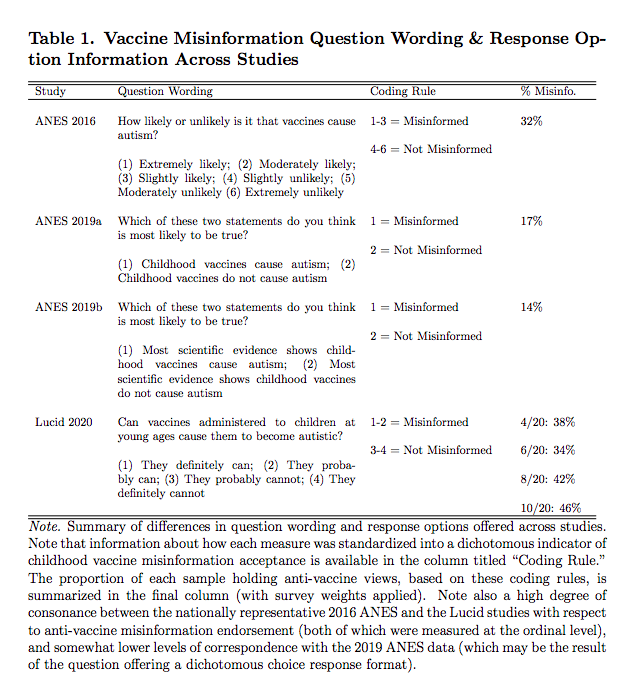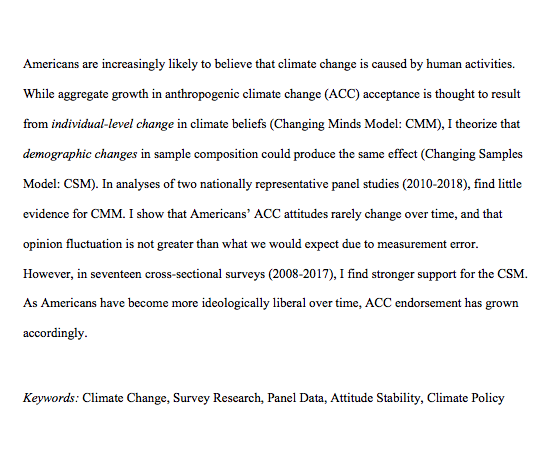
Asst. Prof. @BUSPH_HLPM | Formerly: @APPCpenn @Yale postdoc | @PoliSciUMN PhD
Order my book, Anti-Scientific Americans! https://t.co/INMfOlN5zf
How to get URL link on X (Twitter) App




 Some background. As @kristenvbrown (rightly!) notes in this piece, many see Andrew Wakefield & colleagues' retracted 1998 Lancet study ("AW98") -- and media attention to it -- as a central force in inspiring modern-day vaccine hesitancy in the US.
Some background. As @kristenvbrown (rightly!) notes in this piece, many see Andrew Wakefield & colleagues' retracted 1998 Lancet study ("AW98") -- and media attention to it -- as a central force in inspiring modern-day vaccine hesitancy in the US. 


 First, some background.
First, some background. 



 About a third of Americans express doubt about the safety of childhood vaccines. For some, these views may simply be the result of well-studied social, political, and psychological forces that inspire doubt about vax. safety.
About a third of Americans express doubt about the safety of childhood vaccines. For some, these views may simply be the result of well-studied social, political, and psychological forces that inspire doubt about vax. safety.



 Before summarizing the study, HUGE shoutout to the folks at C[C]ES, @pewresearch, and @YaleClimateComm who did the hard work of collecting the panel and cross-sec. data used in this study, and for making it free for all to use.
Before summarizing the study, HUGE shoutout to the folks at C[C]ES, @pewresearch, and @YaleClimateComm who did the hard work of collecting the panel and cross-sec. data used in this study, and for making it free for all to use. 
https://twitter.com/RachelAbramsNY/status/1238963234197180418This piece from Adam Berinsky finds that politicians who take stances contrary to their partisan interests can convince like-minded partisans to reject misinfo. related to public health.